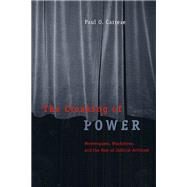The Cloaking of Power
, by Carrese, Paul- ISBN: 9780226094823 | 0226094820
- Cover: Hardcover
- Copyright: 6/1/2003
How did the U.S. judiciary become so powerful-powerful enough that state and federal judges vied to decide a presidential election? What does this prominence mean for the law, constitutionalism, and liberal democracy both in America and internationally? In The Cloaking of Power, Paul O. Carrese provides a provocative and original analysis of the intellectual sources of today's powerful judiciary, arguing that Montesquieu, in his Spirit of the Laws, first articulated a new conception of the separation of powers and of strong but subtle courts. Montesquieu instructed statesmen and judges to "cloak power" by placing the robed power at the center of politics, while concealing judges behind citizen juries and subtle reforms. Tracing Montesquieu's conception of judicial power through Blackstone, Hamilton, and Tocqueville, Carrese shows how it led to the prominence of judges, courts, and lawyers in America today. But he places the blame for contemporary judicial activism squarely at the feet of Oliver Wendell Holmes Jr. and his jurisprudential revolution-which he believes to be the source of the now-prevalent view that judging is merely political. To address this crisis, Carrese argues for a rediscovery of an independent judiciary-one that blends prudence and natural law with common law and that observes the moderate jurisprudence of Montesquieu and Blackstone, balancing abstract principles with realistic views of human nature and institutions. He also advocates for a return to the complex constitutionalism of the American founders and Tocqueville and for judges who understand their responsibility to elevate citizens above individualism, instructing them in law and right. Such judicial statesmanship, moderating democracy's excesses, Carrese explains, differs from an activism that favors isolated individuals and progressive policies over civic duties, communal principles, and constitutional tradition. Students of political theory, law, constitutionalism, and the American founding will find The Cloaking of Power an invaluable resource.






